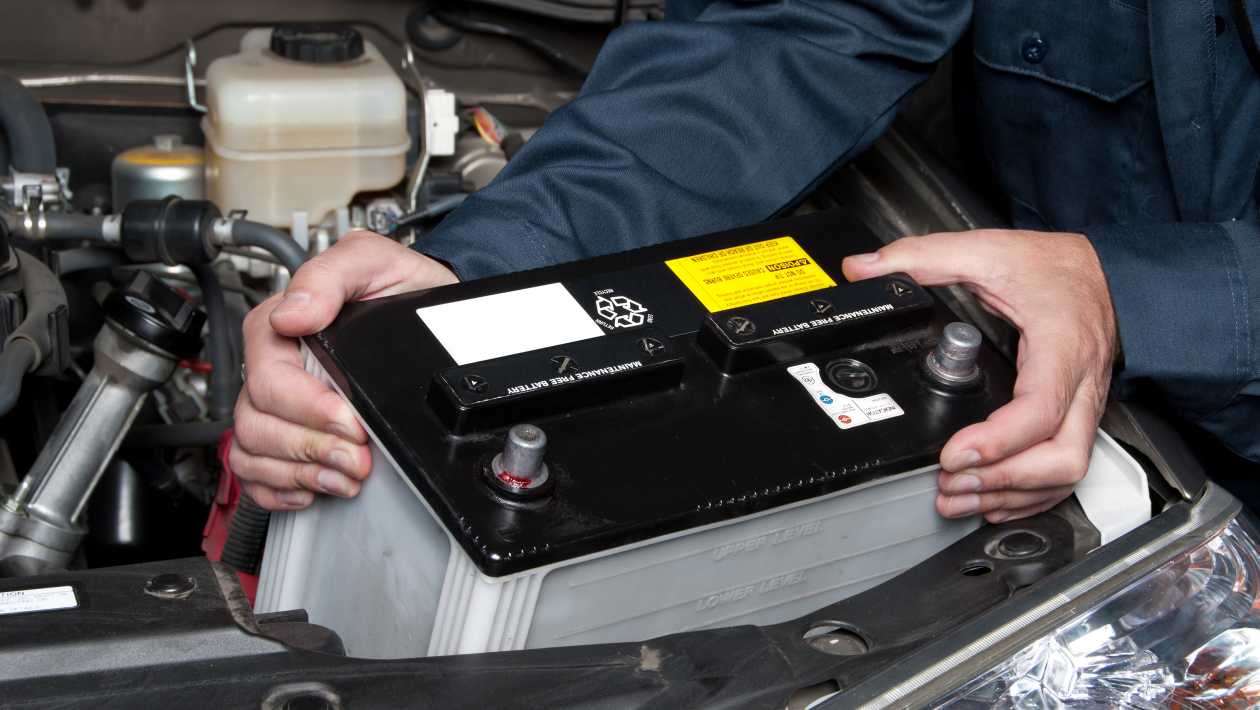The car battery is one of the most essential components of a vehicle. It powers the electrical systems that are necessary for starting the engine, running lights, heating and cooling systems, and many other key features. Over time, however, a battery will lose its ability to hold a charge, requiring replacement to ensure the continued operation of the vehicle. Understanding when to replace a car battery and how to go about doing so can help you avoid frustrating breakdowns and costly repairs.

One of the most noticeable signs that your battery may be nearing the end of its life is slow engine cranking. If your car takes longer than usual to start, especially during cold weather, it could be a signal that the battery is losing its charge. This problem often becomes more pronounced in winter, when batteries are more susceptible to temperature-related issues. In such cases, it’s important to have the battery checked as soon as possible to avoid a complete failure.
In addition to sluggish starting, another sign that your battery might need replacement is the appearance of the battery warning light on the dashboard. This light often indicates an issue with the battery, charging system, or electrical components. If the light stays on after starting the car or comes on while driving, it’s wise to have your vehicle inspected by a professional to determine the underlying cause. Ignoring this warning could lead to further damage and, in some cases, a complete loss of power.
Physical signs of battery trouble also include corrosion around the terminals or visible leakage. Corrosion can form around the battery terminals, impairing the connection between the battery and the vehicle’s electrical system. This can result in a loss of power or inconsistent performance. Additionally, if you notice any bulging or leaking from the battery, it’s a clear indication that it’s time for a replacement. A leaking battery can release harmful chemicals, and continuing to use it can cause serious damage to your vehicle.
The average lifespan of a car battery is typically around 3 to 5 years, though this can vary depending on factors such as climate, driving habits, and maintenance. Extreme temperatures, whether hot or cold, can cause a battery to degrade more quickly. Frequent short trips or long car battery replacement periods of inactivity can also prevent the battery from fully charging, leading to a shorter lifespan. For vehicles that are not driven often, it is especially important to check the battery regularly to ensure it remains in good condition.
When the time comes to replace your battery, it’s important to select a suitable replacement that matches your car’s specifications. Your vehicle’s manual will provide the necessary details on battery size, voltage, and capacity. Many automotive stores and online retailers offer a range of options from reputable manufacturers. It’s always advisable to choose a high-quality battery with a solid warranty to ensure reliability and performance.
Replacing a battery can often be done by a professional at an auto service shop, but it is also a task that some vehicle owners may choose to tackle themselves. If you decide to replace the battery yourself, it’s crucial to follow the proper safety protocols, such as disconnecting the negative terminal before the positive one to avoid electrical hazards. After removing the old battery, make sure to clean the terminals before installing the new one.
Proper disposal of the old battery is important, as car batteries contain hazardous materials, including lead and sulfuric acid. Many auto parts stores offer recycling programs, allowing you to safely dispose of the old battery while protecting the environment.
In conclusion, timely car battery replacement is vital for the continued performance and reliability of your vehicle. Recognizing the signs of battery failure and taking action early can save you from inconvenient breakdowns. Regular checks and preventive maintenance will not only extend the life of your battery but also ensure that your vehicle runs smoothly for years to come.
